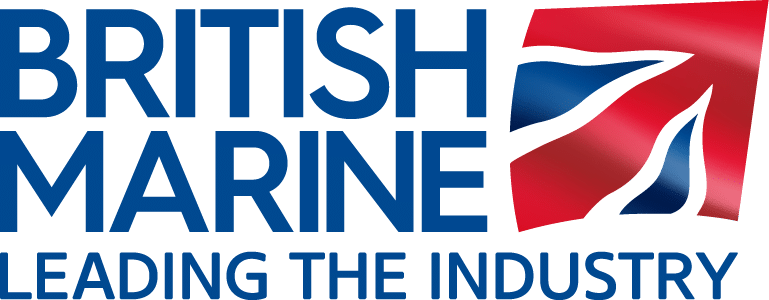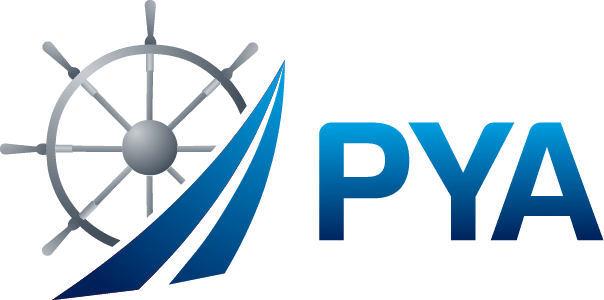Yacht Broker Course
Diploma in Yacht Brokerage
Yacht Brokerage
Maritime Training Academy’s Yacht Broker Course opens the door to a world of opportunity in the marine industry. Whether you’re pursuing a career in luxury yacht sales, exotic charter management or high-value yacht brokerage, this recognised qualification can set you apart in this competitive but lucrative field.
The yacht brokerage industry is a dynamic, high-value sector, with global demand for skilled professionals who can value assets, negotiate complex deals and manage client relationships. As the luxury yacht market continues to expand, the need for qualified brokers is stronger than ever.
Our Yacht Brokerage Diploma and Certificate programmes are developed by industry experts and trusted by employers worldwide. Recognised globally through our partnership with the University of Portsmouth, a leading maritime education authority.
With flexible, online learning, you can study at your own pace from anywhere in the world, building practical skills in yacht valuation, legal frameworks, client relations and operational procedures, the essential foundations for a successful career in yacht brokerage.

Professional Yacht Brokerage Qualification
Gain the practical knowledge to support yacht sales, manage clients and navigate high-value transactions in global brokerage markets.
Contact us below to enrol today, or speak with our experienced course advisors.

Duration:
12 - 18 months
Learn at your own pace
Online Course:
Study from anywhere

Cost:
Diploma: £3,195
Certificate: £2,295

Recognised by: 
Yacht Broker Diploma vs Certification
Choose the right path for your career:
Comprehensive Training: In yacht valuation, contracts, client management, charter logistics and maritime law.
Flexible Study Duration: 12 – 18 month depending when you enrol to the program, study online at your own pace, from anywhere in the world.
Marine Industry Career Opportunities: 100% Online, with access to our student learning portal
Long-Term Career Impact: Yacht Broker, Charter Broker, Client Relationship Manager, Marine Sales Executive, Yacht Sales Manager.
Global Recognition: Our Diplomas are recognised by the University of Portsmouth and are supported by industry associations.
Assignments: One assignment is required to be completed and submitted at the end of each module, based on that particular subject.
Certification: you will receive a PDF Digital certificate (Printed Certificate Completion Pack available).
Final Examination: There will be a final examination upon completing and submitting all student assignments (exams are sat in April or October).
Post-Nominal letters: On passing the Diploma you can also use these letters after your name: MTA Dip YB
Digital Course Badge: Upon successful completion students will receive an exclusive course badge for use on business cards, LinkedIn profiles and website(s)!
Diploma - £3,195
A globally recognised qualification for careers in yacht brokerage, yacht sales and marine consultancy across the global yachting industry.
✔
✔
✔
✔
✔
✔
✔
✔
✔
✔
Certificate - £2,295
Specialist Yacht Brokerage Training without formal assessments, for those who do not require a recognised diploma.
✔
✔
✔
✔
✔
✔
Yacht Brokerage Curriculum: 12 Modules
Maritime Training Academy’s Yacht Broker Course covers everything from valuation and contracts to client management and maritime law, equipping you with the practical skills and industry knowledge needed for a successful career in yacht brokerage.
1. An Introduction to the Yacht Brokerage Industry
- Yachting safety
- The purchase of a yacht
- The law and yachts
- Health and safety for the yacht broker
- Customer relations & common courtesy
- Brokerage companies and organisations
- The essential resources for a yacht broker
2. Types of Vessels & Technical Descriptions
- Basics of design
- Definitions of the principal dimension
- Multihulls
- The shape of hulls
- Types of vessels
- Sailing boats
- Sails and rigging
- Motorsailers
- Powerboats
- Inland waterways vessels
- Mechanical propulsion devices
- Materials & their construction
- Internal equipment
- Electronic & navigation equipment
- Technical standards
- Basic operational knowledge
- Weather and tides
3. Registration, Title Rules and Regulations
- The role and function of registration
- Registration and the certification of registry
- Admiralty law and jurisdiction
- International maritime law
- Documentation
- National and international standards
- The Royal Yachting Association Training & Qualifications
- Schedules
4. Boat Brokers and the Law
Legal concepts
- English Law and the National Legal System
- The law of contract
- The law of tort (negligence)
- Liability in contract and tort
Sale of goods
- UK legislation
- Trade descriptions
Business practice
- Value Added Tax (VAT)
- Recreational Craft Directive (RCD)
- Title & registration
- Marine insurance
5. Business Management
- Starting a boat brokerage business
- Chosen product
- Money
- Risks
- Advice
- Mechanics
- Obtaining listings, photography, advertising and publicity
- Go and see the vessel and crawl over it yourself
- Responsibilities of the different brokerages (listings and selling)
- Getting the vessel on your books
- Marketing and selling
- The sale process
- Communications, ethics and client relations
- The five big thoughts
6. The Surveyor in Practice
- The surveyor
- Organising and completing the survey
- Types of surveyors
- What makes a good surveyor?
- Types of surveys
- The role of the surveyor and the sale process
- The broker/surveyor relationship
7. Sea Trials
- Sea trial and the broker
- The purpose of the sea trial
- Engine tests
- Steering tests
- Other system trials
- Information recording and reporting
8. Valuation
- Valuations
- Valuation methodology
9. Insurance
- The legal side of marine insurance
- The practical side of marine insurance
- The marine trades policy
10. Finance
- Sources of finance available to the broker and the decision criteria
- Title registration and the influence on options for finance
- Liens and encumbrances
- Value Added Tax (VAT)
- Corporate ownership and the rationale
- Financial Conduct Authority (FCA)
- Client funds, trust, deposits and escrow accounts
- Miscellaneous finance topics
11. Charter Yacht Brokerage
- Why get into the charter yacht industry
- Different types of charter
- Structure of the yachting industry
- Getting started
- Finding yachts for your clients
- Different types of charter yachts, toys, amenities and crew members
- International chartering areas and their respective seasons
- Itineraries
- Finding clients
- Sales training & closing the deal
- Contracts
- Financial transactions
- Preference sheets
- Clients & customer care
- Niche marketing
- Charter yacht booking
12. Yacht Sales
- Sales and brokerage
- Franchise / dealership
- Introduction to superyacht brokerage
- Role of the broker
- Campaign – be prepared
- Location
- Purchasers profile & preferences
Hear from our Students
Meet the Course Director
Toby Maclaurin
Director of Sales and Marketing at Ocean Independence
Toby is Ocean Independence Director of Sales in addition to being a Group Board Member and Shareholder of this leading superyacht group.
Toby’s role as Director is exceptionally varied and primarily involves him providing day to day business and troubleshooting support for the group’s 50+ sales and charter brokers across 13 international locations.
He has served on the council of ABYA (Association of British Yacht Agents) and was elected to the MYBA (The Worldwide Yachting Association) governing board in March 2008. He then completed 4 years as MYBA President followed by 4 years as Chairman of the association’s commercial company All Yachting SAS, that owns and operates yachtfolio.com and the MYBA Charter Show.

Yacht Brokerage Course FAQs
Find out more about the Yacht Brokerage course with our FAQs below.
How to to become a yacht broker?
Becoming a yacht broker typically involves gaining a recognised qualification in yacht brokerage, building industry knowledge, and developing the practical skills needed for yacht sales, valuations, and client management. The Maritime Training Academy’s Yacht Broker Diploma and Certificate programs provide the comprehensive training needed to start a successful career in this field.
What qualifications do I need to become a yacht broker?
While formal qualifications aren’t always required, a professional diploma or certificate in yacht brokerage from a globally recognised institution, like the Maritime Training Academy, can significantly improve your credibility and career prospects. These programs cover essential topics like valuation, contracts, client relations, and maritime law.
Which yacht brokerage jobs can I get with this course?
Graduates often pursue careers as Yacht Brokers, Charter Brokers, Client Relationship Managers, Marine Sales Executives, and Yacht Sales Managers, with opportunities to work globally in marinas, brokerages, and luxury yacht firms.
How much do yacht brokers earn?
Earnings in yacht brokerage can vary significantly depending on experience, location, and the type of yachts sold. However, many brokers earn a base salary plus commission, with experienced brokers often making £50,000 to £100,000+ per year.
Is Maritime Training Academy’s yacht brokerage qualification recognised internationally?
Yes, our Yacht Brokerage Diplomas and Certificates are recognised globally and are awarded in partnership with the University of Portsmouth, a leader in maritime education, giving you credibility with employers worldwide.
Is yacht brokerage a good career?
acht brokerage can be a highly rewarding and financially lucrative career for those with a passion for yachts, strong interpersonal skills, and a talent for negotiation. Successful yacht brokers often build long-term relationships with clients, work on high-value transactions, and have the opportunity to travel internationally.
With the right qualifications, like the Yacht Broker Diploma or Certificate from the Maritime Training Academy, you can gain the knowledge, skills, and industry credibility needed to thrive in this competitive but rewarding field.
What’s the difference between a yacht broker and a yacht surveyor?
A yacht broker helps clients buy and sell yachts, managing everything from valuations and negotiations to contracts and client relationships. A yacht surveyor, on the other hand, is a marine professional who inspects yachts to assess their condition, safety, and value—usually before a sale or insurance agreement.</p> <p>While both careers are essential to the yacht industry, they require different skill sets and qualifications. If you’re interested in a technical, inspection-based role, Maritime Training Academy also offers a Yacht & Small Craft Surveying Diploma, which may be better aligned with your goals.
Can I work internationally as a yacht broker?
Yes, yacht brokerage is a global career, and many brokers work in international markets, representing clients across Europe, the US, the Middle East, and Asia. The Maritime Training Academy’s qualifications are globally recognised, giving you the flexibility to work anywhere in the world.
Do I need sales experience to become a yacht broker?
While sales experience can be beneficial, it’s not always required. What’s more important is a passion for yachting, strong communication skills, and the ability to build long-term client relationships. The Yacht Broker Diploma and Certificate programs at MTA are designed to equip you with the practical skills needed to succeed in this field, even if you’re new to the industry.
How will a yacht broker licence further my career?
Many brokers start as junior sales agents or broker assistants and can progress to senior roles like Lead Broker, Sales Manager, or Managing Partner. With the right experience, some brokers even establish their own brokerage firms or move into charter management and marine consultancy.
See our FAQ page for more questions answered about MTA courses.
Endorsed by:

Supported by:





Why Choose The Maritime Training Academy?

Flexible
Online learning allows you to study in your own time, at your own pace from anywhere in the world. This saves on travel and classroom costs and allows you to fit your studies around your job and progress your career.

Supportive
While the nature of distance learning is independent study, we recognise the importance of support. Students can contact us at any time during their course for assistance and our team of industry experts are always on hand for advice.

Expertise
We have over 50 industry experts writing, developing and advising on our course material. We truly believe that allowing students to tap into their expertise and knowledge is of the utmost importance to fulfil your dream career.
If you would prefer to complete this as a classroom-based course, please contact us.
